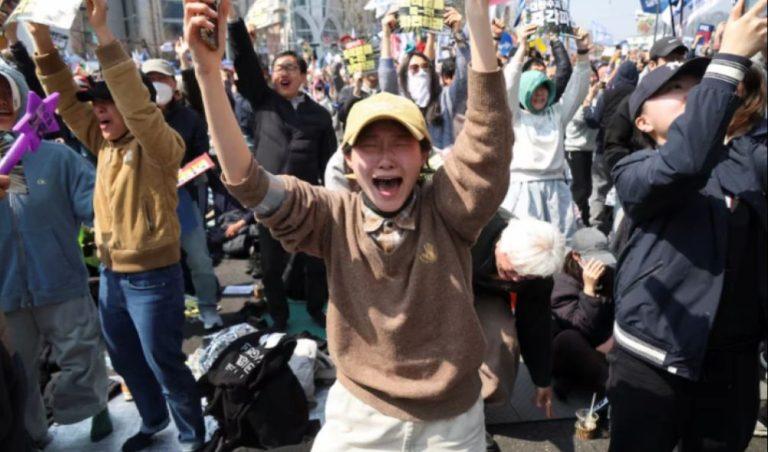South Korean President Yoon Suk Yeol Ousted by Constitutional Court: What It Means for the Country’s Future
On Friday, South Korea’s Constitutional Court made a historic decision to oust President Yoon Suk Yeol, following his controversial declaration of martial law in December. The ruling, which was unanimous, upholds the parliament’s impeachment of Yoon and sets the stage for a presidential election within 60 days, in line with the country’s constitution. Prime Minister Han Duck-soo will serve as acting president until a new leader is elected.
The Impeachment and Its Consequences
Yoon’s impeachment stems from his imposition of martial law, which led to widespread political turmoil and raised concerns about the country’s democracy. The court ruled that Yoon violated his constitutional duties by declaring martial law, which it deemed a “serious challenge to democracy.” The decision comes at a time when South Korea faces complex issues, including military threats from North Korea, pressure from China, and economic challenges exacerbated by U.S. trade tariffs.
A Divided Nation
The court’s decision has sparked mixed reactions across the nation. Thousands of people gathered to celebrate the ruling, chanting “We won!” in joyous rallies. For many, this victory represents a reaffirmation of South Korea’s democratic values and resilience. However, Yoon’s supporters expressed shock and anger, with some even clashing with police. The protests have remained largely peaceful, though tensions remain high.
The Road Ahead: Election and Legal Battles
The ruling now paves the way for a presidential election, with candidates able to register starting Friday. Lee Jae-myung, leader of the liberal Democratic Party, is the clear front-runner, though he faces his own legal challenges related to corruption charges. On the conservative side, the race is wide open. Experts note that the next government will face urgent tasks, including addressing economic issues and foreign policy challenges.
Acting President Han has pledged to stabilize the country and ensure an orderly election. Meanwhile, Yoon, still facing criminal charges related to the martial law decree, has expressed regret over his actions. He apologized to the South Korean people, acknowledging his failure to meet their expectations.
The Aftermath of Martial Law
Yoon’s martial law declaration initially aimed to curb opposition in parliament, but it resulted in chaos and a violent clash between military forces and parliamentary staff. The law was lifted just hours after it was declared, but the damage had been done. The Constitutional Court ruled that mobilizing the military to disrupt the legislature violated Yoon’s constitutional duty to protect the independence of government branches.
In the aftermath, portraits of Yoon will be removed from military bases and government offices. The ruling marks a significant moment in South Korea’s political history, as Yoon becomes the first sitting president to be ousted through impeachment.
A Turning Point for South Korea
This unprecedented move by the Constitutional Court is a reminder of the strength of South Korea’s democratic institutions. It also serves as a signal that the country’s political crisis may finally be reaching resolution. The upcoming election will determine the future direction of the country, as South Korea faces both internal and external challenges.
In the coming weeks, South Koreans will be closely watching the election, as the next president will inherit the responsibility of managing the nation’s political stability, economic growth, and international relations. The outcome of this election will shape the country’s future for years to come.
South Korean President Yoon Suk Yeol Ousted by Constitutional Court: What It Means for the Country’s Future
